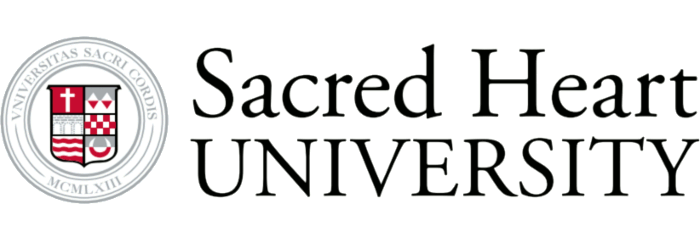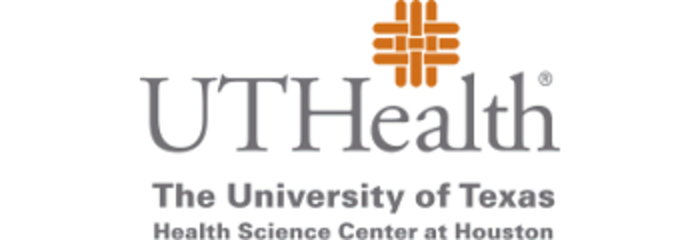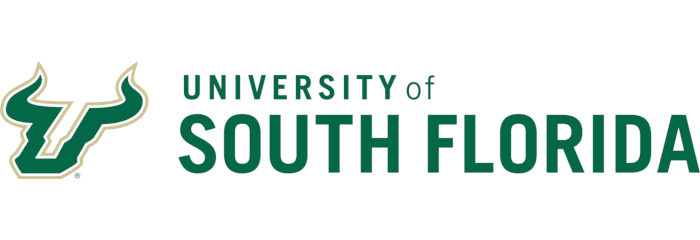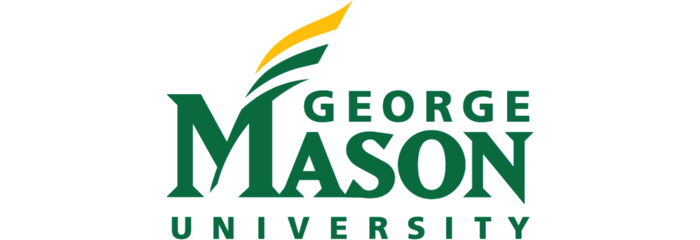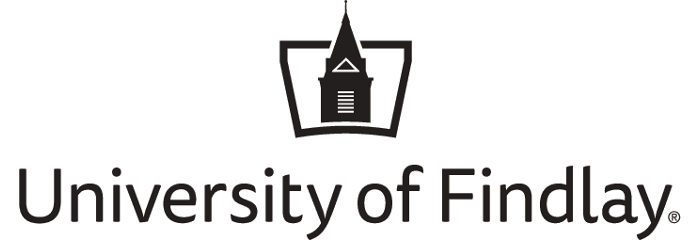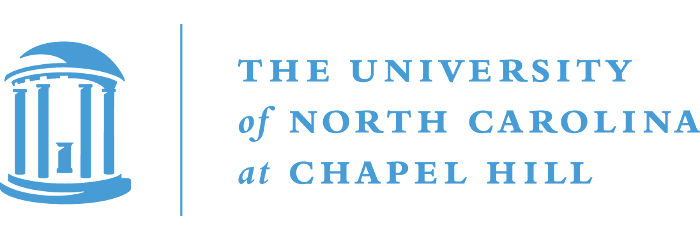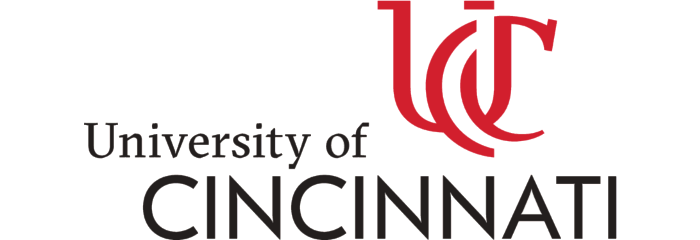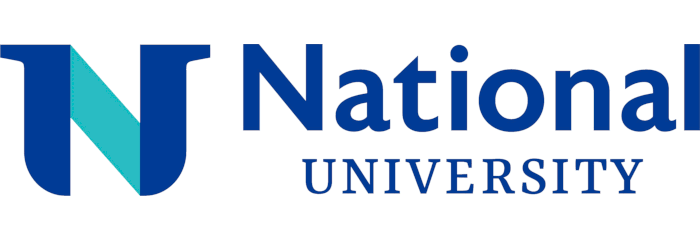2025 Best Health Informatics Master's Degree Online
Our list of the best online master’s degrees in health informatics features accredited schools ranked by the number of graduates who completed this degree. In other words, we’re highlighting the programs producing the most successful health informatics graduates online.
Key Takeaways:
- Sacred Heart University ranks #1 with 126 graduates in its online M.S. in Healthcare Informatics.
- Northwestern University leads for salary outcomes, reporting median earnings of $137,491 among health informatics master's graduates.
- Arizona State University Online enrolls 17,156 distance learners total.
See our methodology for details about our process. We also spoke with Dr. Gregory Gasic, a neuroscientist and biomedical research consultant, who explained how online health informatics degrees prepare students for a data-driven future.
2025 Best Health Informatics Master's Degree Online
| Rank | School | Graduates | Annual Tuition | Median Salary | Recommendation |
|---|---|---|---|---|---|
| Sacred Heart University | 126 | 2 years, and the tuition per credit, which is ."> $14,850 | N/A | 80% | |
| Indiana University - Indianapolis | 102 | 2 years, and the tuition per credit, which is ."> $11,178 | N/A | 94% | |
| The University of Texas Health Science Center at Houston | 75 | $21,255 | $123,632 | 91% | |
| University of San Diego | 73 | $17,910 | N/A | 94% | |
| University of South Florida Online | 73 | $21,126 | $93,300 | 93% | |
| George Mason University | 68 | $15,709 | $119,637 | 94% | |
| The University of Findlay | 55 | $13,860 | N/A | 91% | |
| University of Wisconsin - Milwaukee | 42 | 2 years, and the tuition per credit, which is ."> $12,540 | N/A | 88% | |
| University of North Carolina at Chapel Hill | 37 | $70,332 | N/A | 98% | |
| Rutgers University | 35 | $23,880 | N/A | 91% | |
| Logan University | 31 | $24,300 | N/A | 88% | |
| Arizona State University, Online | 29 | $18,654 | N/A | 93% | |
| University of Cincinnati | 29 | $11,170 | N/A | 86% | |
| DePaul University | 28 | 2 years, and the tuition per credit, which is ."> $22,920 | N/A | 96% | |
| Temple University | 26 | $17,550 | N/A | 94% | |
| Northwestern University | 25 | 2 years."> $30,330 | $137,491 | 95% | |
| National University | 24 | $22,032 | N/A | N/A | |
| Northern Kentucky University | 20 | $18,598 | N/A | 93% | |
| Florida International University | 20 | $22,500 | N/A | 93% | |
| SUNY College at Oswego | 15 | $9,322 | N/A | 91% |
2025 Best Health Informatics Master's Degree Online - Program Details
- Graduates: 126
- Annual Tuition: 2 years, and the tuition per credit, which is ."> $14,850
- Median Salary: N/A
- Recommendation: 80%
Why we like them: Ranked #1, Sacred Heart's online MS in Healthcare Informatics graduated 126 students in the most recent year, which tells you there is strong market traction. Plus, you can leverage this large peer/alumni network for mentorships and hiring pipelines. SHU has a STEM designation that enables eligible F-1 graduates to extend OPT up to 36 months.
- Graduates: 102
- Annual Tuition: 2 years, and the tuition per credit, which is ."> $11,178
- Median Salary: N/A
- Recommendation: 94%
Why we like them: We view IUPUI’s MS in Health Informatics boasts dual distinctions — CAHIIM accreditation and AMIA approval — reaffirmed through 2030. The program operates inside Indiana’s health care hub, adjacent to the IU Schools of Medicine, Nursing, and Dentistry, the Regenstrief Institute, and a VA medical center, giving you proximity to clinical datasets and research partners.
- Graduates: 75
- Annual Tuition: $21,255
- Median Salary: $123,632
- Recommendation: 91%
Why we like them: UTHealth Houston differentiates itself with an AI- and data-intensive spine that few peers match: Machine Learning, Deep Learning, Big Data, biomedical NLP, and a dedicated course in Distributional Semantics appear together in one curriculum, giving you access to cutting-edge methods.
- Graduates: 73
- Annual Tuition: $17,910
- Median Salary: N/A
- Recommendation: 94%
Why we like them: USD hosts an online MS-HCI that's STEM-designated with a HIMSS-approved curriculum aligned to CAHIMS/CPHIMS preparation. We also like that the degree lets you complete both specializations — Health Care Informatics and Healthcare Data Analytics — plus a required practicum for 42 units.
- Graduates: 73
- Annual Tuition: $21,126
- Median Salary: $93,300
- Recommendation: 93%
Why we like them: At USF, you would study in the Morsani College of Medicine, the first U.S. medical school to offer a 100% online MSHI. You gain CAHIIM-accredited training affirmed through 2029, paired with preparation for industry certifications spanning AHIMA CHDA, HIMSS CAHIMS/CPHIMS, AMIA’s AHIC, PMI’s CAPM, and ABPM clinical informatics for eligible physicians.
- Graduates: 68
- Annual Tuition: $15,709
- Median Salary: $119,637
- Recommendation: 94%
Why we like them: GMU's CAHIIM-accredited program offers two tightly focused tracks, including Health Data Analytics and Health Informatics Management. Plus, you maintain lifetime access to career services and high-profile guest speakers after graduation, which is a durable form of alumni support.
- Graduates: 55
- Annual Tuition: $13,860
- Median Salary: N/A
- Recommendation: 91%
Why we like them: At UF, you can stack an 18-credit, CAHIIM-accredited Health Informatics Certificate (accreditation affirmed through 2030( directly into the 33-credit MSHI, letting you earn a recognized credential on the way to the degree. We value that UF is an approved HIMSS partner, which can expand the professional tools, insights, and networking as you build expertise.
- Graduates: 42
- Annual Tuition: 2 years, and the tuition per credit, which is ."> $12,540
- Median Salary: N/A
- Recommendation: 88%
Why we like them: UWM's master's program has unique electives such as Biomedical Natural Language Processing, Biomedical Information Extraction, and Text Retrieval in Biomedicine, positioning you for NLP- and AI-driven roles, which are emerging priorities in this field.
- Graduates: 37
- Annual Tuition: $70,332
- Median Salary: N/A
- Recommendation: 98%
Why we like them: UNC (recommended by 98% of students we surveyed) offers recurring, 30-minute virtual informational webinars on the first Thursday of each month, giving you predictable, frequent access to program coordinators from both the residential and online tracks for live Q&A. This allows you to directly engage with decision-makers.
- Graduates: 35
- Annual Tuition: $23,880
- Median Salary: N/A
- Recommendation: 91%
Why we like them: Rutgers has a deep AI-and-analytics focus, including an 18-credit AI in Healthcare Certificate designed to quickly upskill you for career shifts or advancement while aligning with the master’s curriculum.
- Graduates: 31
- Annual Tuition: $24,300
- Median Salary: N/A
- Recommendation: 88%
Why we like them: Logan is shifting the MSHI to 7-week courses beginning in August 2025, enabling a full-time path to completion in roughly one year, which gives you an accelerated timeline. You also receive complimentary HIMSS membership through Logan’s Academic Organizational Affiliate status.
- Graduates: 29
- Annual Tuition: $18,654
- Median Salary: N/A
- Recommendation: 93%
Why we like them: ASU's online MHI is a first-of-its-kind leadership program grounded in the Seven Pillars of Innovation, so you learn the science of designing, testing, and scaling change rather than only managing data systems.
- Graduates: 29
- Annual Tuition: $11,170
- Median Salary: N/A
- Recommendation: 86%
Why we like them: We value that UC’s MHI is CAHIIM accredited (the first accredited MHI in Ohio) and reaffirmed through 2029, and that UC is a HIMSS Approved Education Partner. You can add specialized depth through a concurrent Certificate in Health Data Science and AI, or pursue a Health Information Security certificate.
- Graduates: 28
- Annual Tuition: 2 years, and the tuition per credit, which is ."> $22,920
- Median Salary: N/A
- Recommendation: 96%
Why we like them: DePaul hosts an AI-first health informatics curriculum that extends beyond hospitals into homes and daily life, preparing you to build digital therapeutics and even launch health-tech startups. You develop hands-on capability across robotics, wearables, mHealth, smart homes, VR, and data engineering.
- Graduates: 26
- Annual Tuition: $17,550
- Median Salary: N/A
- Recommendation: 94%
Why we like them: Temple offers an online MSHI - MPH dual-degree pathway with multiple MPH concentrations and the ability to mix modalities, so you can align public health and informatics credentials to your career plan. You gain free HIMSS student membership as a full-time matriculant.
- Graduates: 25
- Annual Tuition: 2 years."> $30,330
- Median Salary: $137,491
- Recommendation: 95%
Why we like them: NU anchors the master's program in a formal partnership with the Feinberg School of Medicine, giving you direct access to medical school-level perspectives. You choose among three targeted tracks, including Clinical Informatics, Health Technology Informatics, and Health Administration Informatics.
- Graduates: 24
- Annual Tuition: $22,032
- Median Salary: N/A
- Recommendation: N/A
Why we like them: NU’s structure is unusually fast, with an average 13-month completion. We also value NU’s HIMSS Organizational Affiliate status, which connects you with industry standards, communities, and resources.
- Graduates: 20
- Annual Tuition: $18,598
- Median Salary: N/A
- Recommendation: 93%
Why we like them: NKU's completion time is as short as 12 months, and we also like that it has a flat “total tuition” pricing. The Path to Success Scholarship, reserved for first-time NKU UUֱ�� enrollees, further lowers your out-of-pocket cost.
- Graduates: 20
- Annual Tuition: $22,500
- Median Salary: N/A
- Recommendation: 93%
Why we like them: FIU hosts a STEM-designated, business-housed MSHIA that fuses health information management with core business competencies. A Healthcare Informatics & Artificial Intelligence specialization offers targeted AI depth. It also has CAHIIM accreditation.
Dr. Gregory Gasic on How Online Health Informatics Master's Degrees Prepare Students for a Data-Driven Future

Neuroscientist, Scientific Consultant in Physics & Theoretical Biology
What do you see as the main advantages of pursuing a master’s degree in health informatics online?
"An online master's in health informatics provides flexibility which is great for working professionals. We have a variety of learning options which allow students to progress at their own speed while at the same time present them with relevant and up to date information from industry experts."
Which technical and soft skills are most important for success in today’s health informatics roles?
"Key tech skills we see are:
-
EHR systems,
-
Data analysis tools like SQL, R, or Python
-
Having a good handle on HIPAA and interoperability
Also very important are soft skills like communication, team work and problem solving."
How can online programs help students build hands-on experience with real-world systems?
"[Many online] programs we see are including virtual labs, EHR simulations and in depth case studies in the curriculum. Also, some are putting in capstone projects and local internships which gives students hands on experience with health care systems and data tools."
What types of roles do graduates of online health informatics programs typically move into?
[We] see [graduates] going into roles like clinical informatics analyst, EHR specialist, health data analyst or health care IT project manager, which is based on what they bring to the table.
Also, we are seeing growth in areas like AI in clinical decision support, telehealth data management and public health informatics, which is very exciting and has great career potential. These areas are what is going to shape the future of health care delivery."
Are there certain certifications that help accelerate career growth?
"Yes, we do see value in getting certifications like CAHIMS for the new blood and CPHIMS for the more experienced professionals. Also other useful are CHDA or PMP which again is based on what you want to do."
EXPERT TIP
"To do well in this field stay current, get involved in professional networks like HIMSS and also seek out real world projects or internships. Also always look at how technology and data can improve patient care and health care efficiency."
FAQs About an Online Health Informatics Master's Degree
What Is a Health Informatics Master's Degree?
Health care informatics refers to the intersection of the health care industry with computer science and data science. A master’s degree in health care informatics helps students develop the skills they need to pursue data-centric careers in health care and health management, such as researchers, analysts, and information specialists.
Health care informatics is an interdisciplinary field that draws on a range of disciplines, including medicine, software engineering, bioinformatics, data science, information technology, business, and more.
Master’s degrees in health informatics typically take around two years of full-time study to complete. Students who choose to pursue a master’s degree at a part-time pace may take longer to complete the program. Applicants with any academic background may apply for this degree, but familiarity with statistics or computer science can be helpful. Some programs may require entrance exams, like the GRE, or a certain minimum GPA.
Pursuing a graduate degree in this field is one way that students can make themselves more competitive and obtain advanced positions in this industry. With the demand for jobs in health informatics expected to grow over the next decade, students with an online master’s in health informatics will be well-positioned to take advantage of this burgeoning field.
What Are the Branches of Health Informatics?
Health informatics is a larger umbrella discipline that includes many subdisciplines. Some branches of health informatics include the following:
- Bioinformatics
- Clinical informatics
- Consumer health informatics
- Dental informatics
- Nursing informatics
- Pharmacy informatics
- Public health informatics
Students may choose to focus on one or more of these branches during their studies, and depending on their chosen school, they may be able to take a concentration in that field. The skills involved in these branches are similar, but students may develop familiarity with and competency in different areas of health care that will prepare them for careers in this area of specialization.
Is Clinical Informatics the Same as Health Informatics?
Clinical informatics and health informatics are similar — and sometimes the terms are even used interchangeably — but there are a few important differences between these two terms. You can think of health informatics as a broader umbrella term, which encompasses clinical informatics as well as other types of health informatics, such as nursing informatics or pharmacy informatics. Clinical informatics, on the other hand, refers specifically to using data in order to support the clinical decision-making process.
Can You Get a Health Informatics Degree Online?
It’s possible to get a health informatics master’s degree online. Pursuing an online degree can be a good fit for students who have other family or career responsibilities, those who don’t live near a school that offers degrees in this field, and those who prefer the convenience of online learning.
Students interested in an online degree in health informatics should make sure that the school they enroll in is accredited. Accredited schools are reviewed by an independent third party to ensure that they meet certain educational standards. Students should also review information including cost, scholarship and funding opportunities, and student satisfaction ratings.
What Courses Do You Take in a Health Informatics Degree?
Health informatics is an interdisciplinary field that draws on disciplines including medicine, computer science, data science, and more. The study of health informatics includes both theoretical and practical knowledge concerning how health care and information technology intersect.
- Introduction to Health Informatics: As the name suggests, this course introduces students to the field of health informatics, along with foundational concepts and ideas related to the discipline. Students learn about the intersection of data and health care, the history of data in medicine, the design and implementation of information technology in health care, and current trends in health informatics. Students may be asked to use the skills they develop throughout this course in a variety of real-world applications.
- Electronic Health Records: Electronic health records are an important component of health informatics; in this course, students learn how computer-based health records systems work. They also learn about health information privacy and confidentiality, data modeling and visualization, relevant legal issues, and more. Students are also often exposed to current research regarding the efficacy and benefits of implementing electronic health records in a clinical setting.
- Databases in Health Care: Faculty expose students to concepts surrounding databases and data science in this course, especially as they relate to medicine and health care. Students learn about the management and analysis of data in a health care setting, knowledge modeling, and SQL queries while also gaining some practical experience in creating, analyzing, and maintaining databases.
- Designing Consumer Health Technologies: Based on current theories and best practices in health informatics, human behavior, and data science, students learn how to create new consumer health technologies. Designing Consumer Health Technologies is an advanced course designed to give students experience generating and implementing design ideas for health care technology.
- Introduction to Biostatistics: This course provides students with a foundational understanding of biostatistics, which refers to the intersection of statistics with life sciences. In particular, students explore the statistical methods and principles used to collect and analyze health-related data — including sampling, correlation, and regression.
What Can I Do With a Master’s in Health Informatics?
Students wondering if health informatics is a good career choice can rest assured by the fact that it's a growing field with a variety of different specializations available. Those who graduate with a master’s degree in health informatics can pursue careers at the intersection of health care and data science. Health informatics jobs can span a variety of different subdisciplines, including nursing informatics, clinical informatics, pharmacy informatics, and public health informatics, to name a few.
Below are some common career options in this field, but it's important to note that none of these jobs require a master's degree:
are responsible for creating and maintaining databases. In the health care industry, database administrators may oversee databases of medical records and health care information. According to the Bureau of Labor Statistics (BLS), the demand for jobs in this field is projected to grow by 8% over the next decade, which is on par with the growth rate for all occupations.
oversee and coordinate operations within a health care facility or department. This role typically includes both management and administrative duties, and it requires familiarity with the latest developments in health care technology and business practices. According to the BLS, these jobs are expected to increase by 32% over the next decade, which is significantly faster than average. It means that approximately 51,800 new job openings are projected each year through 2030.
are responsible for analyzing and interpreting data to provide meaningful information. In the health care field, data scientists work with health care-related data, including patient records, medical information, and insurance claims.
design, develop, and modify health care information systems. Similar to medical records and health administration specialists, they ensure that records are accurate, secure, and easily accessed by other medical professionals.
As health care and data become more and more intertwined, health care informatics workers are increasingly in demand over the next decade. Demand for most jobs in this field are expected to increase at either an average or higher-than-average rate.
What Are the Benefits of a Master’s in Health Informatics?
There are a variety of benefits to pursuing a master’s degree in health informatics. First and foremost, this degree helps prepare students for well-paying positions in an in-demand industry. Jobs in the health care informatics field are especially well-suited to students with aptitudes for data science and computer programming who are also interested in working in the health care field but may not want to study medicine or work with patients directly.
A master’s degree in health informatics may not be the best fit for students who are uncomfortable working with data or interested in a career with more face-to-face interactions with patients or customers. While online degree programs in health informatics can satisfactorily prepare students for jobs in this field, some students may benefit more from an in-person learning environment. That said, for most students interested in pursuing jobs in the field of health care informatics, an online master’s degree in this discipline is a great way to learn practical skills in order to advance their careers.
Which Is Better Health Informatics or Bioinformatics?
Health informatics and bioinformatics are two different but related disciplines:
Health informatics refers to the intersection of health care and data science more broadly, and it includes a variety of different branches, including bioinformatics as well as clinical informatics, nursing informatics, pharmacy informatics, and more.
Bioinformatics specifically refers to the intersection of data science and biological data, which can be used, for example, to develop new drugs.
Determining which course of study is right for you depends on your interests and what career paths you want to pursue. A degree in health informatics is broader and will prepare students for careers in a variety of different health care adjacent disciplines. Bioinformatics, on the other hand, is a more specific degree that has a stronger emphasis on biology, chemistry, and genomics.
Which Is Better Health Informatics or Bioinformatics?
Health informatics and bioinformatics are two different but related disciplines:
Health informatics refers to the intersection of health care and data science more broadly, and it includes a variety of different branches, including bioinformatics as well as clinical informatics, nursing informatics, pharmacy informatics, and more.
Bioinformatics specifically refers to the intersection of data science and biological data, which can be used, for example, to develop new drugs.
Determining which course of study is right for you depends on your interests and what career paths you want to pursue. A degree in health informatics is broader and will prepare students for careers in a variety of different health care adjacent disciplines. Bioinformatics, on the other hand, is a more specific degree that has a stronger emphasis on biology, chemistry, and genomics.
What Professional Organizations Can Health Informatics Students Join?
Students interested in health informatics may benefit from joining professional organizations during or after their studies. These organizations can help students expand their peer network, gain certifications, and stay up-to-date on current practices. You may consider joining the following organizations in this field:
Student Reviews of Online Healthcare Informatics Programs
I am scheduled for graduation on February 17, 2024, and this has been a great experience. All the professors are attentive and accessible. If you have any questions, they are always available to answer them. Being a non-traditional student with outside responsibilities makes school a challenge, but my experience with this University leaves me with a positive feeling. Although I had a very busy schedule, the flexibility of the professors proved to be just what I needed to make my journey a success.... Read More
Review Date: 1/13/2024
Would Recommend: Yes
Helpful for Career: Yes
The best University. The professors and the advisors are great! My advisor always follows up with me to check my progress. The professors respond to my questions and emails on time. The program is very interesting and the classes that I'm currently taking are very beneficial to me.
Review Date: 10/30/2023
Would Recommend: Yes
Helpful for Career: Yes
I would first like to thank the entire staff for the excellent knowledge they have given me regarding health information management. At this university, my dream has come true. Several reasons make me like Purdue Global. 1. First and foremost, it was effortless for me to manage my time. 2. Students could perform their studies at their own pace. It was difficult for me to return to university after 20 years as an international student. Thank you to all of the devoted, experienced faculty and advisors... Read More
Review Date: 8/15/2023
Would Recommend: Yes
Helpful for Career: Yes
The Health Informatics program is very informative and seems to cover a lot of ground. Despite the comments here, I have found the instructors to be easy to work with and helpful. However, the instructors are COMPLETELY hamstrung by the lecture schedule. For example I have a lecture from 10pm - 11pm on Tuesday nights. This covers the topic for the assignment DUE at midnight! There is no possible way to incorporate items from the lecture or guidance on the subject into a paper/project due in an hour.... Read More
Review Date: 12/10/2019
Would Recommend: Yes
Helpful for Career: No
The college is great and so are the professors. There's a lot of assignments and it can be quite overwhelming. If you work hard, you'll get the grade you deserve. Its a school that definitely stands out from others as the curriculum is good and the professors are very knowledgeable.
Review Date: 8/9/2022
Would Recommend: Yes
Helpful for Career: No
I'm a 3rd generation Boilermaker and I was looking to advance my career options in healthcare IT. I had worked in the industry for ~5 years and wanted a flexible opportunity to work while pursuing education. Purdue Global offered me a doable schedule that I've now completed after 1.5 years to get a master's degree.
Review Date: 9/20/2022
Would Recommend: Yes
Helpful for Career: No
Although I would not immediately recommend this program to just anybody that is interested, it MIGHT be an ideal program in a particular situation depending on the student's career path and what they want and expect from this degree. However, my impression of the curriculum in this online graduate degree program is that it is more of an OVERVIEW or SURVEY of informatics in general. Each semester is divided in half with courses being 9 weeks in length. This time frame worked out fine for some courses,... Read More
Review Date: 1/5/2023
Would Recommend: No
Helpful for Career: No
While EVMS has an incredibly supportive faculty, its administrative services are severely lacking... to the extent that it's greatly impacted my overall experience with the school. I can't speak for the school's MD, other doctoral, or PA program, but I would pass on this school for non-professional Master's degrees. My course material was appropriate, however, after graduating I realized that my program severely underprepared me to find a job in my field. We were not even appropriately taught how... Read More
Review Date: 12/16/2023
Would Recommend: No
Helpful for Career: No
Its a great school. Not easy but worth the hard work. The grading is fair and the courses are very well laid out. The professors are extremely helpful. Its worth the effort and the degree! I would recommend this school to others especially if they are working full time and just can't attend classes. The world has changed now anyways, online or hybrid is the way to go especially for grad school!
Review Date: 6/21/2022
Would Recommend: Yes
Helpful for Career: No
Aspen University was an excellent choice for me because it met four main priorities: it was accredited, affordable, did not require campus attendance, and most of importantly, no work was expected on the Sabbath day of rest. I was also blessed to have excellent instructors and advisors throughout the program. The assignment instructions were clearly relayed, and were mostly graded in a timely manner. The few times assignments were not graded within the specified time frame, the instructors clearly... Read More
Review Date: 7/1/2020
Would Recommend: Yes
Helpful for Career: No
I enrolled in Rutgers' Masters of Nursing in Nursing Informatics based on reputation and accessability. As I started exploring the different options for MSN programs for NI, I received a lot of positive feedback about the success of the Rutgers students and how well prepared they were upon graduation. In addition, the program is almost 100% online, except for optional experiences you can attend and, of course, the practicum. This is an absolute must for adult professionals who are continuing their... Read More
Review Date: 3/16/2018
Would Recommend: Yes
Helpful for Career: No
My time with Capella has been nothing but great. The progression of the courses and its content was relevant and effective. I particularly liked one course where we were asked to do and record a powerpoint presentation together with a paper. It was definitely training for the real world. Online classes work best for students who are self-directed and motivated to do the coursework correctly and on time. I am 2 courses away from graduating and my facilitators are providing feedback on content and... Read More
Review Date: 2/20/2019
Would Recommend: Yes
Helpful for Career: Yes
There is a reason it is recommended that you take this program one class at a time; it is a very intensive program. However, it allows you to make connections with various individuals across the country, and world sometimes, working in your desired field (Instructors) or studying right along with you to get there.
Review Date: 4/4/2017
Would Recommend: Yes
Helpful for Career: No
I've chosen to attend Capella University because the admissions process was a lot easier to pass; though I prefer a more brick-and-mortar college. Capella is a nice university of itself. However, my program in health care informatics do not live up to the expectations that I had. The courses taken are fluff. I wish the program was more tailored on informatics itself without all of the irrelevant extras. But looks like I'm enrolled in the program for now. This is the only downfall that I have about... Read More
Review Date: 9/19/2016
Would Recommend: No
Helpful for Career: No
I have been happy overall with the degree program that I am enrolled in for online classes, but I feel that I must warn potential students of one thing that can ruin their grades. That thing is the FINAL SUBMIT link that must be clicked in order to turn in your weekly assignments. This seems to be an unnecessary extra step in a process that requires you to first click New Attempt, then browse for and attach your paper, and then click Save. Nonetheless, that is not finished yet.... You must also then... Read More
Review Date: 7/23/2016
Would Recommend: Yes
Helpful for Career: No
Arizona State has a very innovative online program. It allows you the flexibility of online learning while still working. You will learn a lot and the education is top notch. I have not regretted the opportunity of going back to school. Arizona State is a great University.
Review Date: 8/8/2016
Would Recommend: Yes
Helpful for Career: Yes
Great program and give lots of information, but not a very good idea for the midlife career change. Good for fresh young students who have time to collect experience in specific field and reach the height. This a great path toward the high post over time but also a great path to help healthcare and make it better. It has the combination of IT and Medical which bring a new professional to the arena who can take the health informatics to the next level.
Review Date: 4/22/2015
Would Recommend: Yes
Helpful for Career: No
Customer service is great at this school, there is always a student advisor willing to help. The rigor of the educational programs is comparable to any, I would definitely recommend this school to anyone who is looking for the beat at an affordable cost.
Review Date: 12/31/2016
Would Recommend: Yes
Helpful for Career: Yes
The pros for the graduate program is that it allows me the opportunity to do the program online. No commuting. I can travel and still be meeting my weekly assignments without missing out of class. One have to be motivated and time management skills. The Cons of the program is that you do not get to interact with your classmates and professors. This prevent you from networking with other professionals. The work load is more than the traditional class room setting assignments.
Review Date: 10/13/2014
Would Recommend: Yes
Helpful for Career: No
I've graduated from Walden with a Masters in Nursing Informatics. It was a rigorous and rewarding process that provided vital information and skills. I changed careers almost immediately upon receiving my MSN, having this degree has clearly opened doors for me. I've also published a text and have consulted extensively with a publisher on other projects, all thanks to my MSN from Walden. Overall, truly great experience and I would recommend Walden to anyone who is interested in achieving a graduate... Read More
Review Date: 8/1/2022
Would Recommend: Yes
Helpful for Career: No





